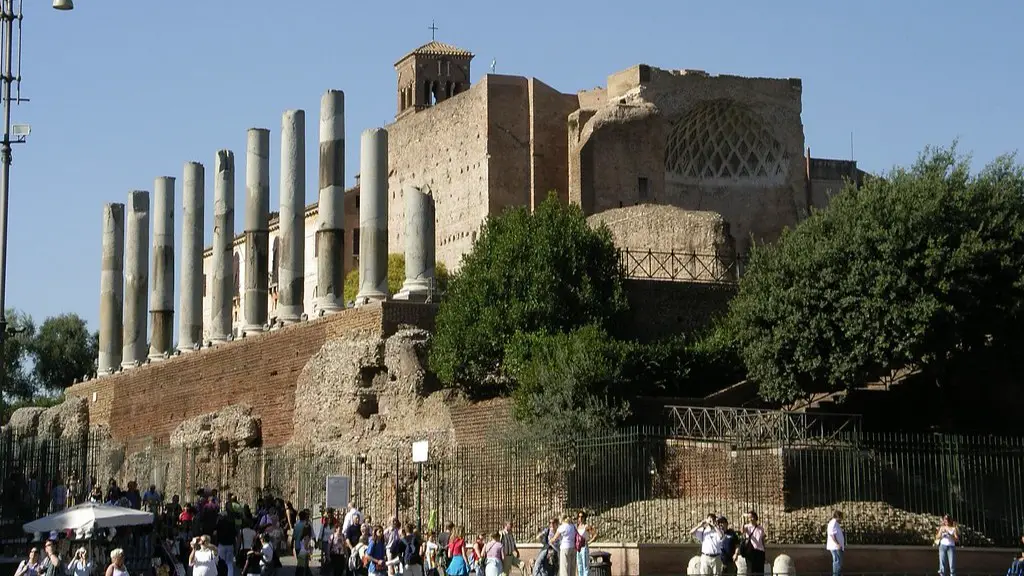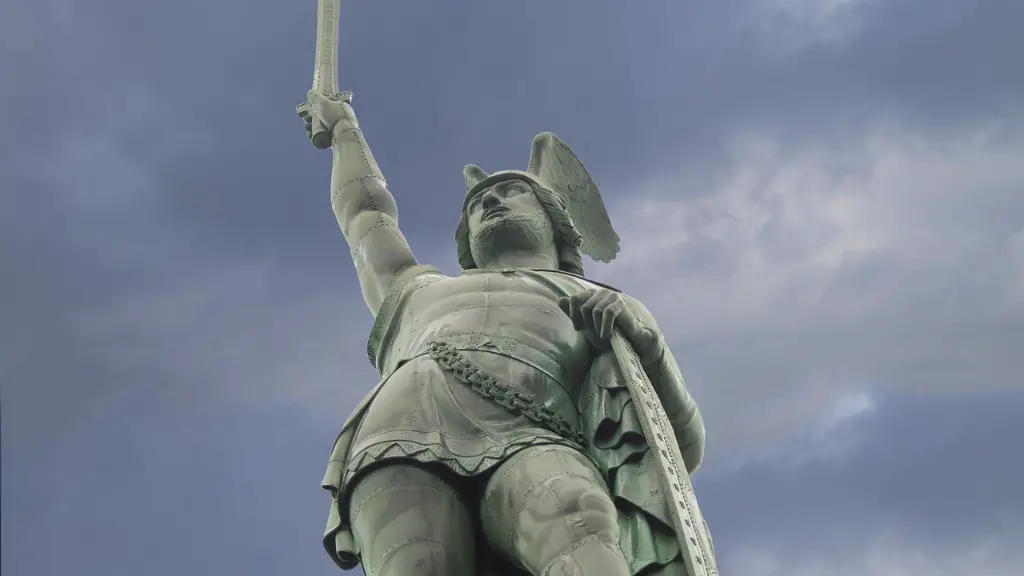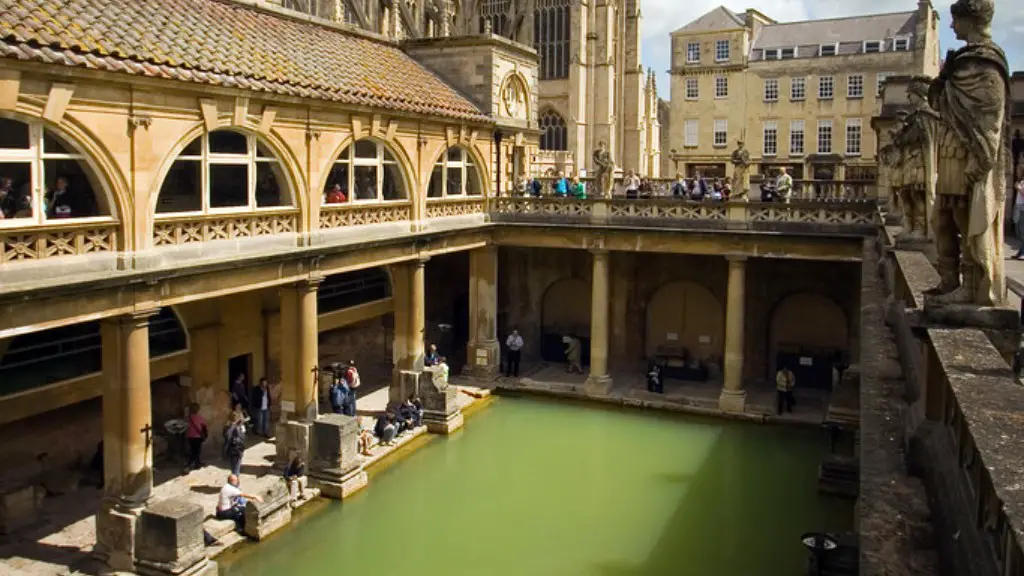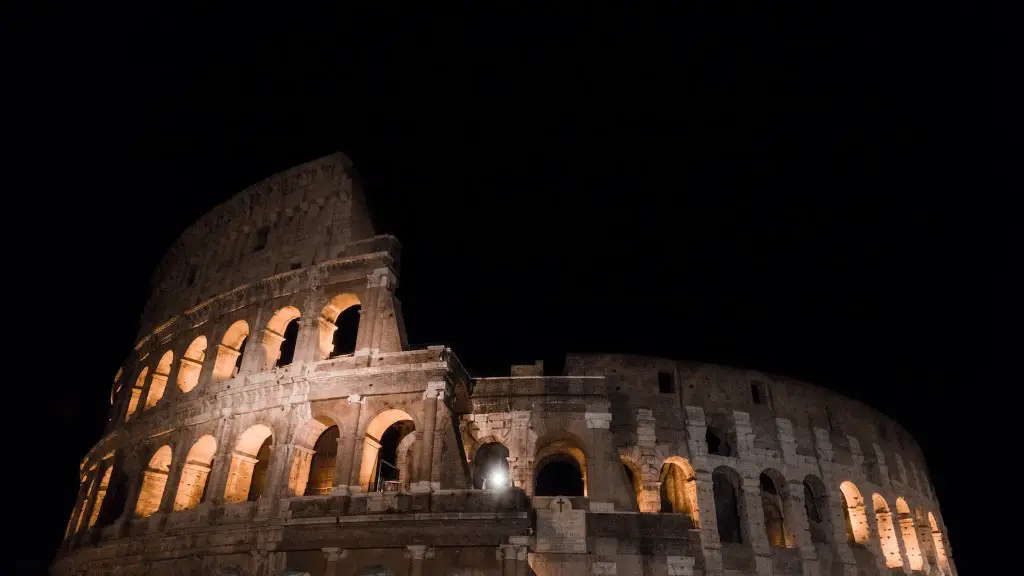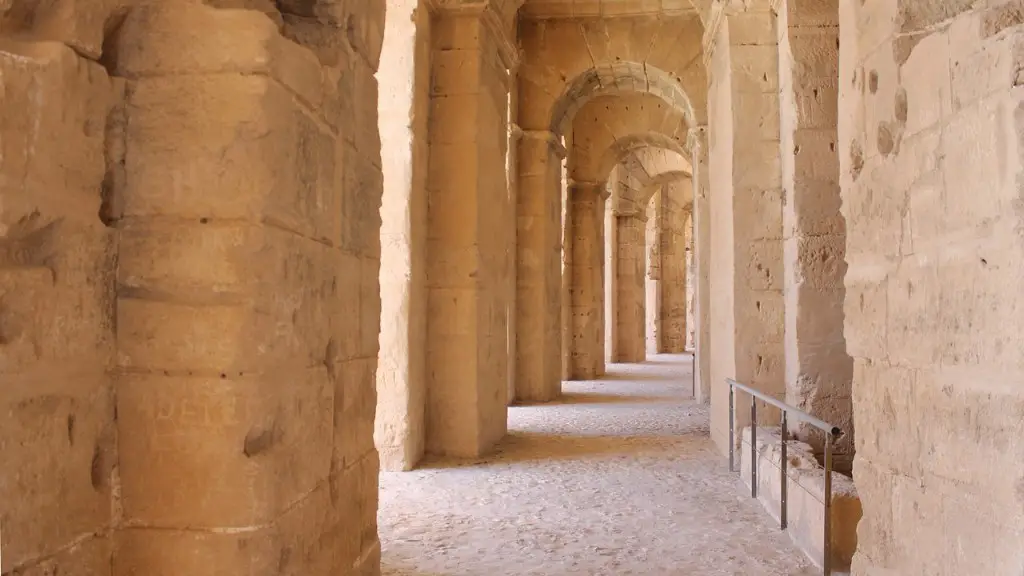Throughout history, one of the most controversial and mysterious leaders of ancient Rome was Julius Caesar. He was responsible for a great many social and political changes within the Roman Empire, and his influence continues to be felt today. Many historians believe that Julius Caesar was a military and political genius and that his leadership had an enormous impact on the history of ancient Rome. This article will explore some of the key aspects of who Julius Caesar was as a leader and how his leadership helped shape ancient Rome.
Born in 100 BC, Julius Caesar was mainly of aristocratic ancestry, hailed from a family with strong ties to the Roman political establishment. As a young man, he entered politics and eventually became a senator. It was during this time, that he began to build a vast military and political power in Rome. He was a great leader, and some attributed to him the introduction of certain key reforms, including the introduction of the Julian calendar and the granting of citizenship rights to all Roman citizens. He also initiated the reform of the Roman taxation system and made significant changes to land holding and military organization.
During his period as a leader, Julius Caesar was also at the forefront of the war with Gaul (modern day France). This conflict was instrumental in unifying the political elite under one banner and gave Julius Caesar a great opportunity to implement his ideas and reforms on a wider scale. As the leader of the army, he was able to completely defeat the forces of the Gauls and gain control of the territory he sought. This was a major victory for Julius Caesar and enabled him to gain enough strength that he eventually declared himself ‘dictator for life’.
Julius Caesars position as the leader of Rome was challenged by a number of powerful figures, but his strength in the face of these challengers gave him a more secure status. He was able to successfully suppress civil wars and maintain a strong political grip on the state. However, his plans for the increased power, unification of the Roman Empire and centralization of power were greeted with much resentment by those who felt threatened by his power and autocratic rule. Eventually, he was assassinated by a group of senators who did not agree with his plan to seize more power.
Julius Caesar’s legacy is still with us today. He is remembered as one of the most influential leaders of ancient Rome and a man who was driven by ambition and ambition alone. His achievements in politics and the military elevated Rome to its golden age, a time when it was the superpower of the world. His reforms and methods of government were both unique and controversial and are still studied and compared to today. Julius Caesar changed the course of history in ancient Rome, and his legacy still carries a strong influence throughout modern times.
Social reforms
Julius Caesar was noted for being an advocate for social reforms within ancient Rome. He repealed laws which meant poverty stricken citizens had to pay a form of taxation to receive benefits from the state, such as grain for food. This reform improved access to basic needs for all citizens and brought about a more even playing field for the poor and rich. He however, was keen to maintain the dominancy of the elite political class, so pushed for personal gains in their favour.
In the streets of Rome citizens could expect the Roman police force, they were to meet his expectations of order. This was in part responsible for the relative stability that Rome experienced during his reign and is an area where it is easy to see his influence and the value he placed on keeping an orderly state. This disallowed riots and uprisings, albeit for his own personal gain, and meant that citizens of Rome could enjoy relative freedom and safety. A well guarded city was however, not Julius Caesar’s only thought when it came to improving the state of Rome, leading Julius Caesar to touch on the aspect of education.
In a time when education was expensive, Julius Caesar provided basic education to boys, free of charge. This urban reform greatly bolstered his reputation, as well as the skillset of Rome’s younger generation and helped to increase their appeal in society. Julius Caesar saw education as an essential component to the effectiveness of a nation and as such enabled literacy to reach further than just the rich parts of society.
Although great strength came into the cities of Rome through Julius Caesar’s leadership, some worried that his power was a little too strong. He was creating a form of dictatorship, a personal contemporary form of governance, which had never been done before and which challenged traditional systems of rule. It could be said that Julius Caesar was the architect of his own fate, and his death came at the hands of those he was trying to control.
Military leadership
Julius Caesar was viewed by many as a gifted military tactician and strategist who was able to apply his knowledge with creativity and skill. He was able to understand the dynamics of warfare and utilise this to maximum potential during conflicts. His campaigns in Gaul, for example, brought about much success with minimal casualties, leading to a swift and decisive victory. His strategies were often regarded as ‘brilliant’ and he was the holder of several prominent military victories. This was in part down to the care and attention that he gave and his dedication to the forces he led; he treated his troops with respect and provided a strong sense of direction following conflict. His charisma often meant that battles were hard-fought and it was likely that his troops would follow him into many more to come.
In a formal sense, Julius Caesar was highly successful as a military leader. He was the first Roman political leader to use professional military forces and weapons in combat. His reforms changed the structure and tactics of the Roman army, leading to a much more reliable and well-equipped army. He created an efficient logistics system, established camps, organised the use of weapons and recruited foreign troops, which all helped to strengthen the Roman military further.
The knowledge and strategy that Julius Caesar held in relation to warfare was respected even after his death. After centuries, many noted military strategists such as Napoleon Bonaparte were influenced by his writings on warfare. This shows how influential and insightful his contributions were to the art of war, and how his leadership in victories were important to the Roman military machine.
Political reforms
As well as military reforms, Julius Caesar was also responsible for major political reformations. He became a dictator for life, which meant that he held absolute authority over the Roman people. This allowed him to enact several reformations which consolidated his power and enabled him to control the direction of Rome. He passed laws which allowed him to appoint governors and create new provinces throughout the empire. This allowed Rome to expand and grow further than it had previously.
He also created a new, centralised system of law which allowed all Romans equal access to justice and protection. This system removed the power of local authorities, who previously held it. Again, this system was often seen as controversial due to the centralisation of power, but it had a positive effect in the long-term. This system of centralised law allowed minorities to be heard in court, something which was not previously possible before Julius Caesar.
The period of Julius Caesar was a period of significant change for the Roman Empire, during which his reforms were instrumental in helping to shape the course of Roman politics and society. Through his leadership and legacy, Julius Caesar was able to transmit a political and social order which has endured for centuries and still resonates today. His legacy has ensured that until the present day the Romans celebrate his memory, due to his ambition and the grandeur of his accomplishments.
Philosophy
Julius Caesar did not just focus on the physical reshaping of Rome, but also the philosophical impacts it could have. He devoted himself to the intellectual pursuit of knowledge and power, something that would fuel both his public and private life. He seen himself as a driven individual, with much ambition and a sense of self-assuredness, something which his efforts to bring about new reforms would further highlight.
His effort to gain power, knowledge and stability were seen by him as a means of ensuring the growth and survival of his people. This self-assuredness was seen as a unique trait in the era, and his writings often touched on the topics of power, morality and humanity. These insights would influence generations to come and many see Julius Caesar as a major influence in philosophical thought in the West.
He also wrote extensively on, orators, rhetoric oratory, and the art of persuasion. His ideas on the topic, including the advice that ‘even the weakest argument should not be abandoned but taken up and defended’ have been adopted by leaders and speakers throughout history, proving the longevity of his philosophy.
Religious beliefs
In an era when religion was dominant, Julius Caesar held some religious beliefs which set him apart from his contemporaries. He was not a follower of the traditional Roman pantheon, instead he adopted an eclectic set of beliefs which were often of a syncretic nature. He was renowned for advocating religious tolerance, which was at odds with traditional Roman beliefs.
He also believed in the existence of many deities, including one single god who was the source of all power. His beliefs were contrary with the traditional Roman pantheon, which helped him attract a greater following of citizens. This religious tolerance and openness to the beliefs of others, although not the norm, galvanised support from the public.
It is clear that Julius Caesar was an influential leader, who left a lasting impression on the religious and political landscape of ancient Rome. His openness to beliefs which were different from the traditional ones of the era have helped bring forth a sense of tolerance which many see as a cornerstone of Roman life and culture.
